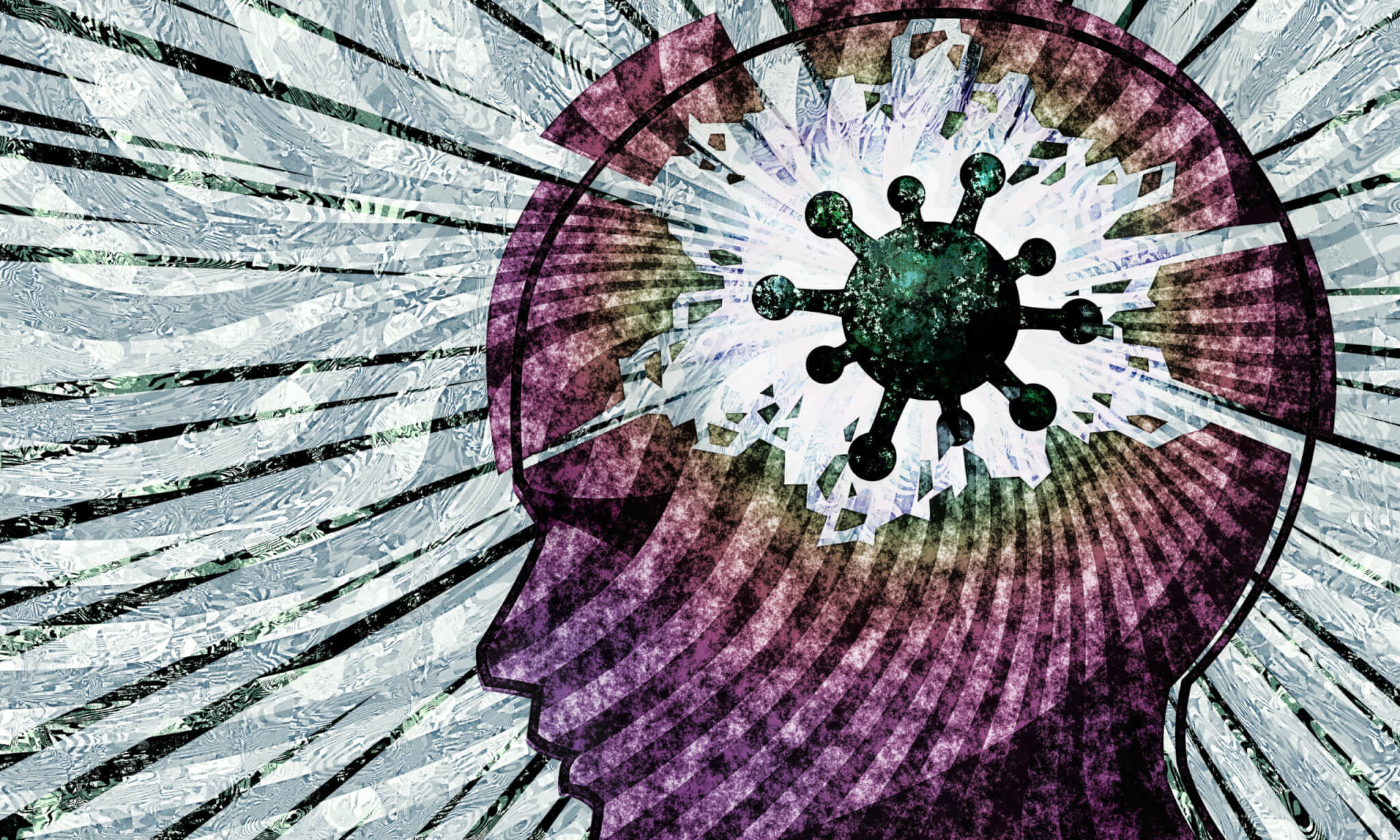HANOVER, N.H. — There’s a new rare symptom of COVID-19 infection. A recent study conducted by Dartmouth College researchers reveals that COVID can have an unexpected effect on our ability to recognize faces and navigate our surroundings.
While studies have linked the virus to various neurological issues such as loss of smell and even attention problems (brain fog), this study is the first to observe a condition called “prosopagnosia,” commonly known as face blindness, as a consequence of COVID-19 infection.
The study focused on Annie, a 28-year-old customer service representative, and part-time portrait artist who contracted COVID in March 2020 and experienced a symptom relapse two months later. Following the relapse, Annie noticed difficulties in recognizing faces and navigating her environment.
During her first encounter with the researchers, Annie explained that she was unable to recognize her family members’ faces. She shared an incident where she met her family at a restaurant after recovering from COVID-19, but she couldn’t recognize them. It was only when her father called out to her that she realized it was her family. Annie now relies on voices to identify people she knows.
Additionally, Annie experienced challenges in navigation after having COVID-19. She struggled to remember the layout of her local grocery store and relied on Google Maps and its pin function to locate her parked car.
The combination of face blindness and navigation difficulties intrigued the researchers. These two deficits often occur together in individuals with brain damage or developmental issues, as they rely on neighboring brain regions in the temporal lobe.

To evaluate Annie’s face recognition problems and assess potential difficulties in other cognitive abilities, the research team conducted a series of tests. They found that recognizing familiar faces and learning the identities of unfamiliar faces was particularly challenging for Annie. In one test, Annie was presented with images of celebrities and asked to name them. She correctly identified only 29 percent of the familiar celebrities, whereas most people can identify 84 percent of familiar faces.
In another test, Annie was shown images of two faces — one of a celebrity and another of someone resembling that celebrity — and asked to identify the famous person. Annie identified the correct celebrity in 69 percent of the trials, compared to 87 percent in the control group. Annie also struggled to learn and recognize unfamiliar faces, as demonstrated by her performance in the Cambridge Face Memory Test. While most people can correctly identify 80 percent of learned faces, Annie could only identify 56 percent of them.
However, Annie performed well in tests related to scene processing, indicating that her navigational impairments are not due to difficulties in recognizing scenes but rather in understanding the relationships between different places.
The researchers found that Annie’s face detection, face identity perception, and object recognition were normal, suggesting that her issues primarily stem from face memory deficits rather than generalized impairments. It is important to note that Annie excelled in voice recognition tests compared to the control group, suggesting that her face processing difficulties are specific to the visual system.

These findings highlight the severity and selectivity of the deficits experienced by Annie and suggest that other individuals may also face similar challenges following COVID-19.
To explore whether perception, recognition, and navigational problems are common among individuals with long COVID, the researchers collected self-reported data from 54 individuals experiencing symptoms for 12 weeks or more and 32 individuals who had fully recovered from COVID-19. The results revealed that a majority of respondents with long COVID reported noticeable difficulties in tasks they were previously able to perform without any problems. Many experienced issues with visualizing family and friends, which is a common complaint among individuals with prosopagnosia.
The study emphasizes the importance of recognizing the perceptual problems associated with face recognition and navigation caused by COVID-19. The researchers encourage healthcare professionals to be aware of these issues and advise individuals who experience perceptual or vision problems or navigational difficulties as a result of COVID-19 to seek medical attention.
“As far as we know, nobody’s measured the sorts of high level, visual processing abilities that are affected by COVID-19 that we focused on here in this paper, so if it’s happening in the visual system, it’s likely that selective deficits due to problems in other brain areas are occurring in some people as well,” says senior author Brad Duchaine, a professor of psychological and brain sciences and principal investigator of the Social Perception Lab, in a university release.
The study is published in the journal Cortex.


I woke up in Er in a hospital I know every corner of because I worked there years before. The short blinks I was awake everything was I saw was black and white, everything was further away than it actually was like looking down a tunnel. My only memories are in black and white.
I’m going similar issue myself since I got this from loosing all my strengths it was like all can see was paretheal everything seemed so far when it was actually close I couldn’t walk nor balance myself much less concentrate without having headaches that I never had thank god o can walk again but everything hurts still it’s very difficult to concentrate which it made hard for me too work that for the second time I went out on leave again the first time was 8 months now this time around it’s going on 3 months I’ve seen just about every neurologist,ophthalmologist,primary doctor & still none is able too help me!!
This isn’t a new I’ve been dealing with this since July of 2022 & I’m still struggling with it I’ve seen many doctors opthamologist, neurologist, I’ve had two kat scans x rays blood work ekg & two MRI two with & without contrast & none can seem too find out what is wrong with me!! I know have too go seek a second opinion I’ve been in & out of work since then very hard for me too concentrate see in the mix of all of this I got. High blood pressure a fatty liver pain all over my body & now have arthritis in my lower left back I don’t even know where too turn too for help…..
Identify famous stars ?
Ridiculous
Hell I don’t watch TV nore do I follow movie
Stars
Id fail that test and I don’t have covid !